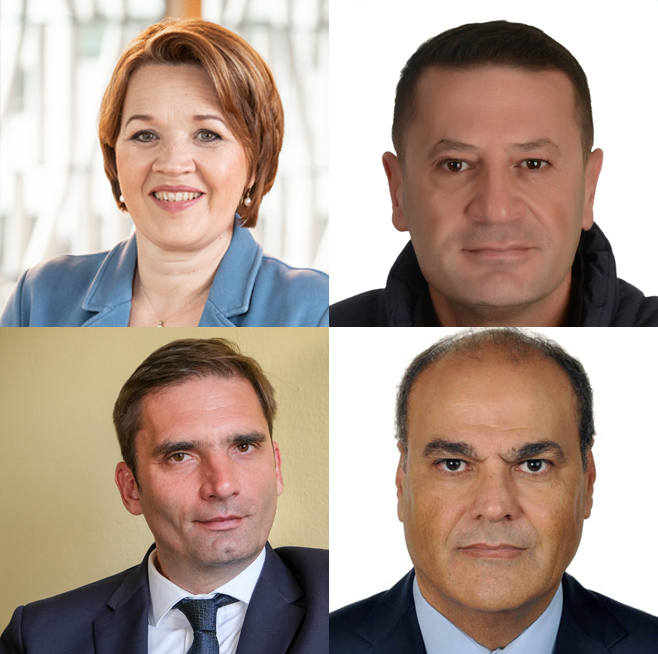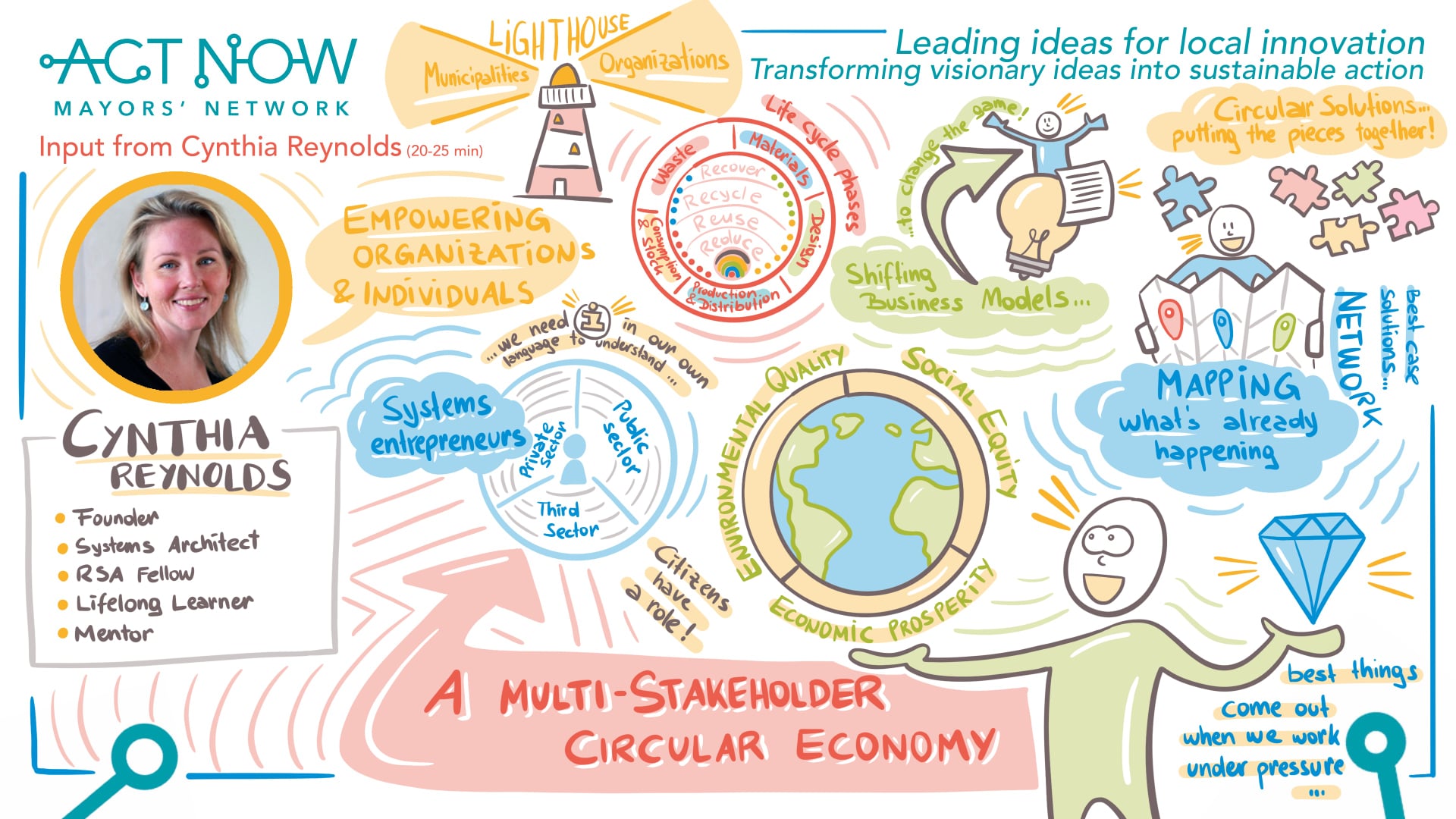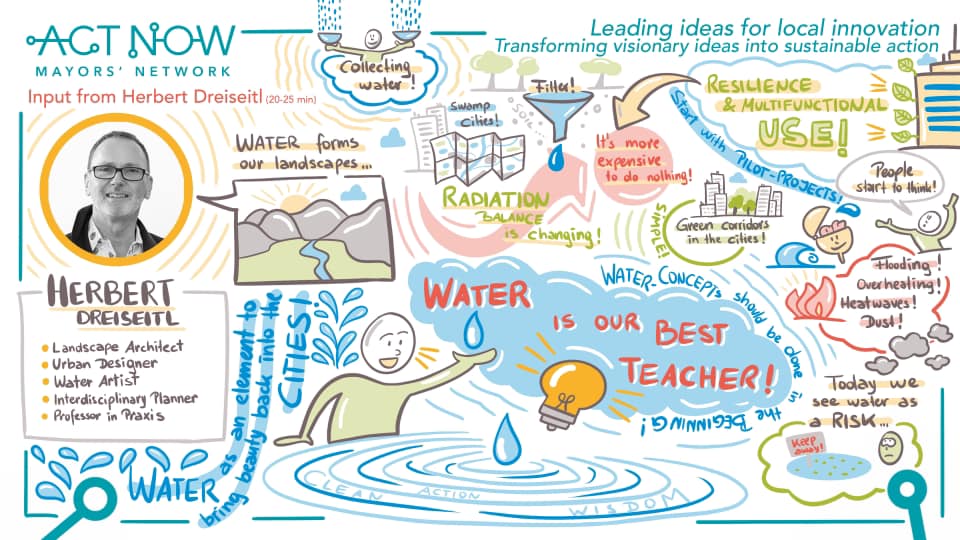The Corona pandemic forced municipalities to react promptly to unprecedented change and thus mayors to operate throughout the different layers of the crisis with diligence, resourcefulness and grit.
Being a mayor of any city is a big challenge in itself. But the increased pressure and demand to provide communities with relief during the pandemic makes it critical for citizens to remember that mayors are – above all – people, who must navigate through the same loss and grief as everyone else while remaining strong pillars of leadership.
That is why in this blog series we asked members of our ACT NOW Mayors Network to share their biggest challenges and successes throughout the pandemic:
Andrea Kaufmann, Mayor of Dornbirn, Austria
“The pandemic has changed many things: the way we live together in our society but also ourselves. Despite physical distance, people in our city have shown solidarity and cohesion, especially in the beginning of the crisis. They supported each other and learned to appreciate regional goods and product–cycles, despite growing frustration in the face of the personal and social restrictions that were felt by all of us. Keeping the atmosphere in the city positive was certainly the biggest challenge of the past year. We currently feel that with the continuously increasing number of those fellow citizens who are immunised, the hope of a return to normal living together is rising. I hope that the spirit of mindfulness and mutual appreciation will continue in the future. If so, this would then be one of the few positive aspects of this crisis.”
Klemen Miklavič, Mayor of Nova Gorica, Slovenia
“We live in a single urban area of Nova Gorica and Gorica/Gorizia. The border runs in–between, but the economy, culture, education and social life of both cities are interwoven. However, the COVID–19 situation brought up the unthinkable: the governments in Rome and Ljubljana forgot about our local reality and closed the border, believing that doing so would contain the spread of the virus. Instead, the sudden restrictions fundamentally affected the daily life of our citizens in both parts of the single urban areas of both cities. The street barriers and police controls were a return to the situation of the first decades of the Cold War.
Our biggest achievement was succeeding in containing the pandemic and helping vulnerable social groups, including those families affected by the closure of the border. We also managed to prevent our governments from putting up barriers and fences in the second wave of the virus. We also learnt a lot about our positive cross– border integration and demonstrated our case to Europe and the world. In fact, this period helped us to convince the EU panel to award Nova Gorica and Gorica/Gorizia the status of European Capital of Culture 2025. We now better understand how important it is that at times of crisis European countries do not fortify themselves within national borders but rather reach out in solidarity.
We also now better know how to appreciate what the EU and Schengen Agreement has brought us. Moreover, new ‘extraterritorial’ governance forms need to be found to manage integrated cross–border territories such as the region of Nova Gorica and Gorica/Gorizia. Local communities that are far from capital cities are often not understood and not provided for properly by national governments. Perhaps the EU should be the authority that develops a sensitivity and understanding for the cross–border European regions and their people, especially where they form an integral social, cultural and economic reality”
George Antoun, Mayor of Choualiq, Lebanon
“Being the mayor of a small traditional community where all people know one another and have lived and thrived on mutual support and sharing, one of the most difficult humane challenges encountered during COVID 19 restrictions and amid strict government instructions to avoid gatherings, was the urge to lead by example and therefore the inability to share with people (family, friends, and others in the community) their sorrow and participate in funerals. However, the greatest reward that one can get and feel is when you look back and realize that in a small newly established municipality that doesn’t have staff, the cooperation between the nine volunteer city council members including the Mayor and deputy and their agreement to divide the tasks among themselves allowed for appropriately serving the community and especially when caring and following up on those who got infected and providing them with what they needed to go through such a horrifying experience.”
A. Rida Karaki, Mayor of Aïn Qana, Lebanon
“In the past year, the municipality dealt with the challenge of age groups’ behaviour in the face of Corona, and the biggest challenge was the youth’s underestimation of the seriousness of the disease. This group was more vulnerable to infection. In turn the virus was easier to transmit to the elderly. Because the youth were not interested in the repercussions of exposure to the disease and its transmission to aging people and relatives, the suffering was greater.
The municipality has been able, despite the lack of material and human resources amidst a large number of crises plaguing the nation and the absence of the state, to secure medical supplies, medicine and specialized consultations for the ill and observe their recovery, as well as care for the ill psychologically and socially through constant communication with specialized work teams, which contributed to achieving important successes in facing the Corona crisis.”
Want to read even more captivating stories from the members of our ACT NOW Mayors’ Network? Here is the first part of this blog series.


